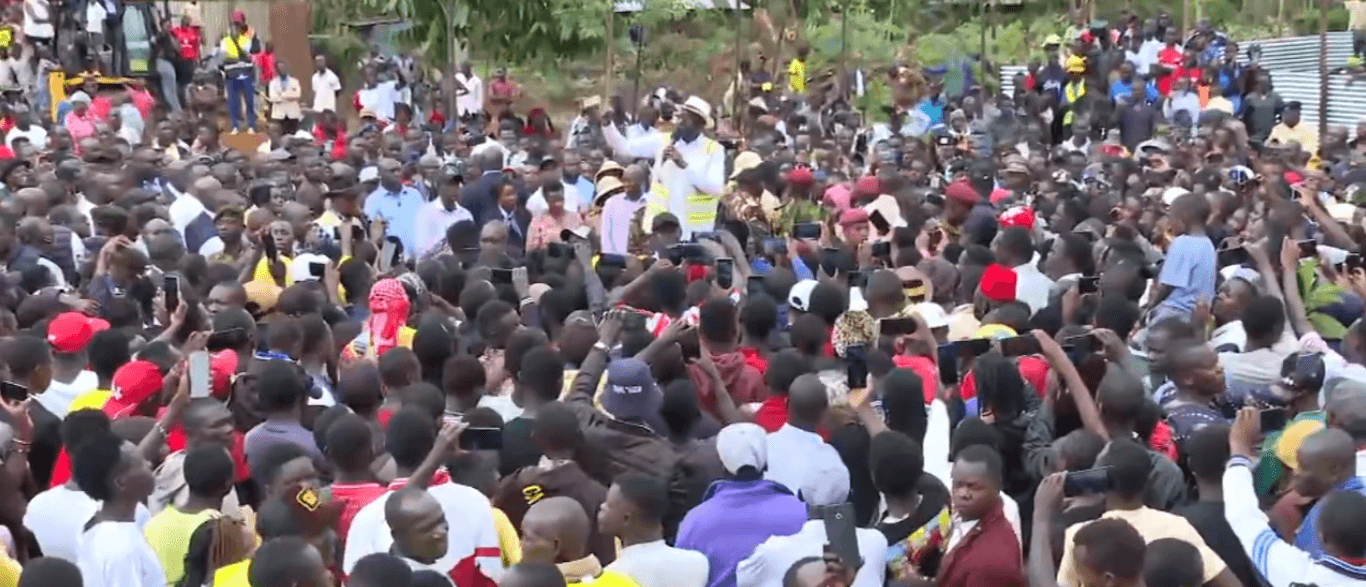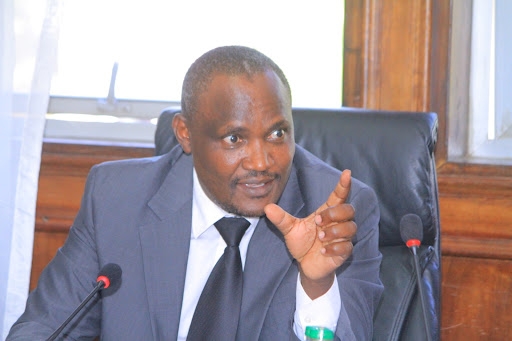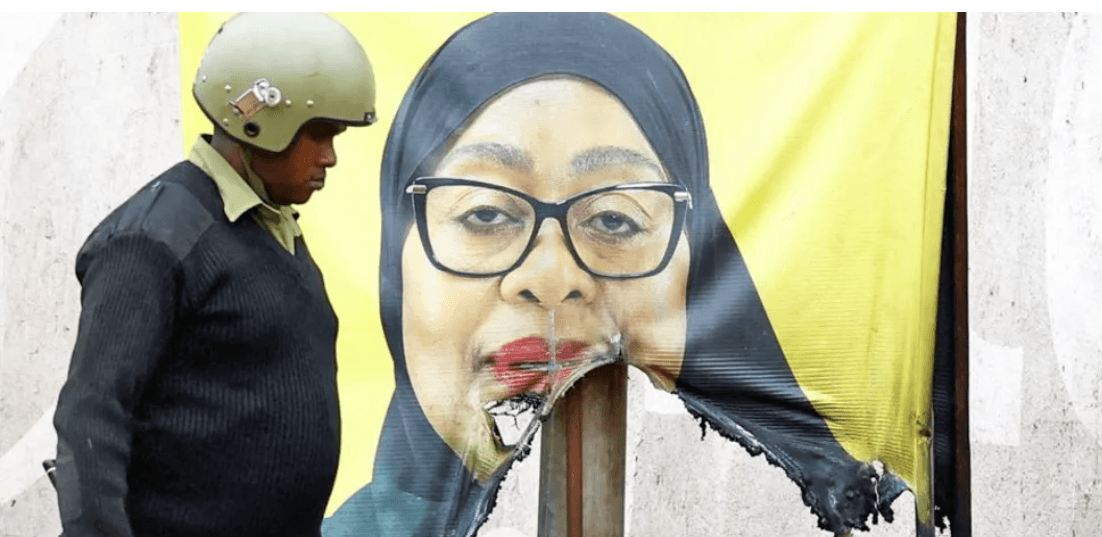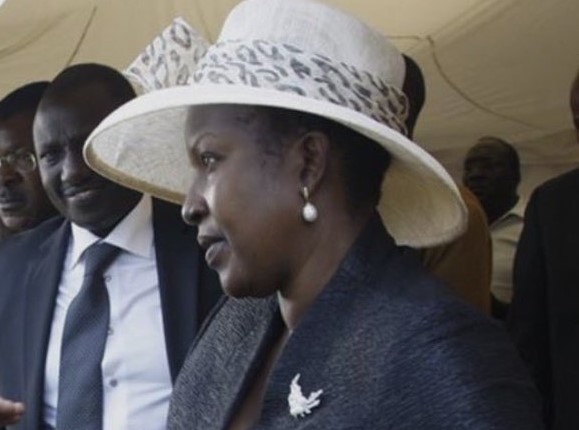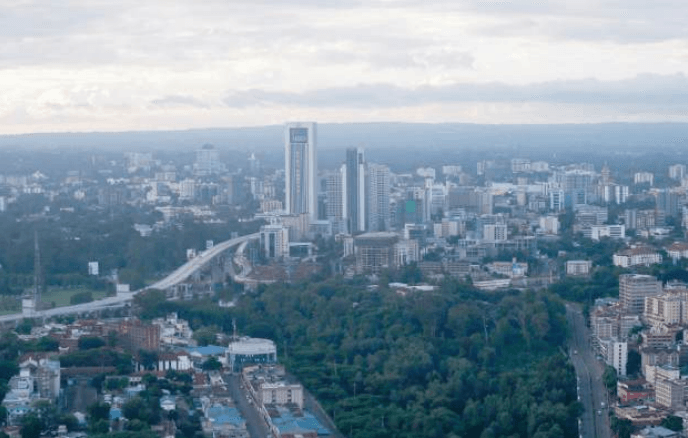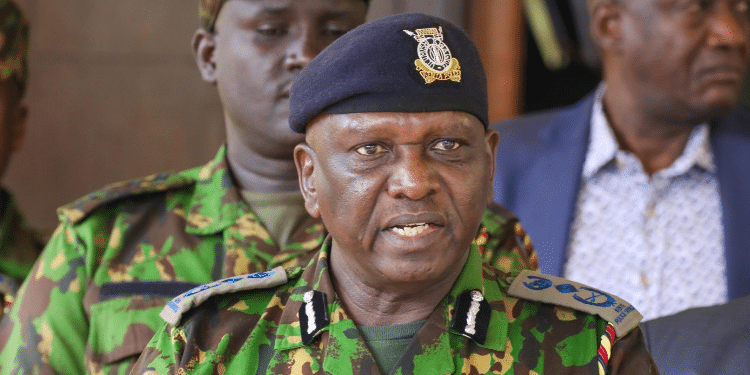David Kimondo is proud that he has helped treat several ailments at his ‘hospital’ in Chaka Mweiga for the past 30 years using traditional medicine.
“I treat all the diseases except witchcraft,” he says.
Name it. Arthritis? He says he can treat it in three hours. What of the diabetes tormenting Kenyans? “I treat diabetes in between one and two months,” Kimondo says without batting an eye.
Scientifically, there is no cure for these diseases, and Kimondo's claims could not immediately be verified.
Nonetheless, he maintains that herbal medicine is working but most hospitals are yet to embrace them.
Herbal medicines do not have side effects like the conventional ones, he adds.
“The conventional medicines for (high blood) pressure will eventually lead to side effects, such as stroke,” Kimondo says.
“The side effect of conventional diabetic drugs is the collapse of kidneys. The herbal medicines do not have any side effects.”
Kimondo says herbs have advantages as one herb can treat up to 20 ailments in the body.
He says the government should fund capacity building for those handling traditional medicine.
“We need universities that offer courses on traditional medicine and laboratories to test the different herbs to improve standards,” Kimondo says.
With such improvements, he foresees Kenya being at par with countries such as China and India.
He said the Kenya Bureau of Standards should also have parameters for herbal medicine.
Kimondo says testing of herbs sometimes takes long. Most herbal books are not produced locally, which gives practitioners a headache.
TRADITIONAL MEDICINE DAY
Kimondo raised the challenges facing his trade as Kenya joined the rest of the continent to mark African Traditional Medicine Day 2024 on August 31.
The day has been celebrated annually every August 31 since its inception in 2003 to recognise the vital role of traditional medicine in the health and well-being of generations across the continent.
Commemorated at the National Museums of Kenya, the day brought together traditional medicine practitioners, government officials and scientists.
The theme of the day was, "To support the provision of quality and safe traditional medicine through appropriate regulatory mechanisms."
The event brought together key stakeholders to discuss the development of regulatory systems that ensure the quality and safety of traditional medicine products, practices and practitioners.
The day recognised the significant role traditional medicine plays in the health and well-being of generations across Africa.
It provided a platform for discussions on how various government departments and stakeholders can collaborate to preserve and integrate traditional medicine into mainstream healthcare.
During the marking of the day, 100 participants who had been attending one-year plant talks graduated.
The use of herbs was particularly common in the country when the first case of coronavirus was confirmed on March 12, 2020, sparking fear and despair.
The use of herbs prompted the Kenya Medical Research Institute to issue an advisory on herbal and traditional medicine use in the treatment and management of the virus.
Kemri said media reports indicated that herbal and traditional medicines in combination with conventional drugs were being used as remedial therapies for Covid-19 in certain parts of the world.
However, concrete scientific evidence to support the claims was yet to be presented.
“Therefore, as it stands now, there is no herbal or traditional medicine ascertained to be of therapeutic benefit in Covid-19 management,” Kemri said.
PASSING KNOWLEDGE
Kemri has already established the Centre for Traditional Medicine Research.
In addition to conducting quality assurance of conventional medicine, the centre is mandated with carrying out research to rationalise traditional medicine in Kenya.
The integration of herbal medicine into conventional ones is, however, faced with several challenges.
These include stigmatisation due to poor perceptions and attitudes, poor conservation strategies of medicinal plants and indigenous knowledge, and modernisation and exploitation of communities that own the knowledge.
Herbalist Society of Kenya secretary general Richard Chepsom says their work as herbalists is not just about preserving the past.
“It is about shaping the future. It is about ensuring that the knowledge passed down from our ancestors continues to benefit all Kenyans, now and in the generations to come,” Chepsom says.
Chepsom says partnership with the Ministry of Health, county governments and other relevant bodies is crucial if traditional medicine is to be integrated into Kenya’s national and county health systems for every Kenyan to access safe, effective and affordable healthcare.
He says education is crucial as it is the cornerstone of progress in any industry, and calls for investing in educating practitioners as well as the public.
Traditional medicine should be taught in schools and universities alongside modern medical practices, Chepsom says.
He believes this will not only preserve heritage but also open new avenues for innovation and collaboration.
“I am pleased to announce that the Herbalist Society of Kenya is actively working with the Ministry of Education to develop curricula that include traditional medicine,” he says.
“These initiatives aim to equip students with the knowledge and skills they need to contribute to the healthcare sector, blending the best of traditional and modern medicine.”
Chepsom says they are encouraged by the growing number of county governments that are recognising the value of traditional medicine and taking steps to incorporate it into their healthcare services.
He pledged to work with the ministry to develop a regulatory framework that ensures the safety and efficacy of traditional medicines, while also protecting the rights and interests of herbalists.
“We envision a future where traditional medicine is fully integrated into Kenya's national healthcare system, recognised and respected alongside modern medical practices.”
LEGAL FRAMEWORK
MoH traditional medicine head Dr Pauline Duya said the commemoration of the day allows the country to showcase what traditional medicine is all about.
“It also gives us the platform to upscale matters of traditional medicine in Kenya and see how we can support this sector and practice to be where it needs to be and be at par with other countries that have developed it,” Duya said.
She said the ministry has been helping to develop policies to support the sector even though it is a work in progress.
“We have had drafts, discussions and most notably, if you look at our health law, we have a chapter that talks about traditional and alternative medicine in Kenya,” she said.
Duya said policies that will guide national and devolved units are being worked on to standardise traditional medicine.
She said the policies will also guide training, improving products and looking at referral mechanisms.
“We know that traditional medicines have been with us from time immemorial in this country, but the only challenge we have had is on standardisation and quality,” she said.
“We need that to be improved so that we can have more products that are registered by the Pharmacy and Poisons Board.”
Duya said Kenyans will then have products that are not only assured of quality but also efficacy and effectiveness.
She said the future is bright with the support of everybody.
“This is our medicine. We are not expecting so many other foreigners to properly help us,” Duya said.
“This is our thing and it allows us to develop our products. This sector is very rich in us getting new products that can be used in our essential medicine list once they are developed.”
NMK director general Prof Mary Gikungu says traditional medicine is important to the institution as it is part of Kenya’s cultural heritage (knowledge and practices), natural heritage (plants and microorganisms) and associated technologies for processing medicines.
“The knowledge and practice include the common use of herbs for prevention, treatment and palliative care,” she said in a speech read on her behalf by antiquities director Fredrick Manthi.
Gikungu says over the years, NMK has collaborated with indigenous and local communities to document, preserve and promote traditional medicine and medicinal plants through its various sections and departments.
These include the Centre for Biodiversity Department, Kenya Resource Centre for Indigenous Knowledge (Kenrik) Section and Phyto-chemistry Section.
Also, through the botany department, plants are identified and conserved.
“NMK has supported the use and preservation of traditional medicine through previous and ongoing projects and programmes,” she says.
“For example, community-based conservation of medicinal plants project, the network on traditional medicine and medicinal plants, capacity building in conservation of medicinal plants and now the cancer palliative care initiative.”
Dr Eliud Musotsi, the acting deputy director of research grants at National Research Fund, says funding research in the field of traditional medicine is key for the nation.
“There exists limited space where African traditional medicine knowledge can be passed to future generations,” he says.
“Hence research funding in African traditional medicine will offer an opportunity for knowledge co-creation and sharing.”
Musotsi says funding for research is still low as it currently stands at two per cent of GDP.
However, funding today stands at 0.04 per cent of GDP.


